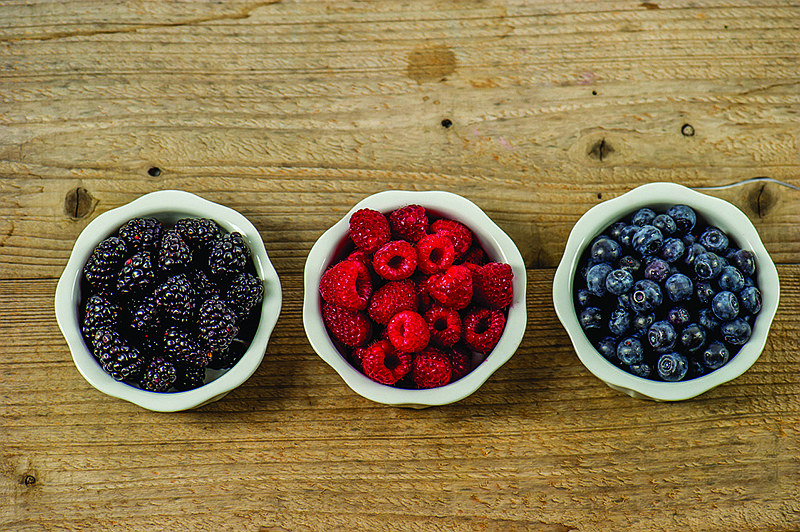Are you a fan of berries? Blueberries, blackberries, raspberries, strawberries and many other berries (including some exotic berries) have jumped to the head of the class when it comes to health promotion. In reality, all berries offer nutrients that provide special benefits to the body. So what's the quick run down on berries?
Blueberries are rich in antioxidants. They also contain compounds that help widen arteries and allow blood to flow through more smoothly. Having memory issues? Eating blueberries has been linked to memory improvement. As with all berries, they are low in fat and contain high amounts of vitamin C. In addition, blueberries are also an important source of fiber.
Blackberries are sleeping giants! They are rich in polyphenols, linked to helping prevention of cardiovascular disease and even some cancers. Add to this the fact they are rich in vitamin C, a bit of iron, calcium, and vitamin A for a power punch! Finally, a cup of blackberries contains 7 grams of important fiber. Adequate fiber intakes is linked to reducing risks of certain cancers, heart disease, diabetes, and high cholesterol.
Strawberries are also packed with vitamin C. They are also an excellent source of folate. This essential B-vitamin has been linked to reducing homocysteine, a possible contributing factor in heart disease. Similar to blueberries, strawberries contain compounds to prevent plaque build-up in arteries.
Raspberries are powerhouses when it comes to vitamin C content. They are also rich in heart healthy fiber; a half-cup contains 4 grams. Raspberries also contain manganese. Manganese plays a role in bone health, thyroid function, metabolism of fats and carbs, and blood sugar regulation. Raspberries also have high levels of polyphenols; that may help reduce heart disease risk.
If you are looking for a tart berry look no further. Acai berries from Brazil offer the highest amount of antioxidants in the berries mentioned so far. Acai berries also contain some other trace minerals, including chromium, zinc, iron, copper, manganese, magnesium, potassium and phosphorus. Additionally, studies show compounds found n the berries may lower LDL cholesterol. In lab tests, acai extract has helped stimulate this "housekeeping" response in brain cells. Since cleaning up toxic or no longer working cells is important to overall brain health, acai can be of great benefit!
Another tart berry not to overlook is cranberries. More popular during holidays, this berry should be considered year round. Cranberries may improve your HDL or "good" cholesterol. It may also reduce urinary tract infections (UTIs). Cranberries are also linked to lowering blood pressure and improving immunity. No matter what your preferred taste, there is a berry right for you!
Dr. Dianna Richardson of the Health, Wellness & Nutrition Center in Jefferson City has served communities as a wellness practitioner for more than 20 years. Core to her practice has been the use of nutrition to enhance health and improve vitality.

